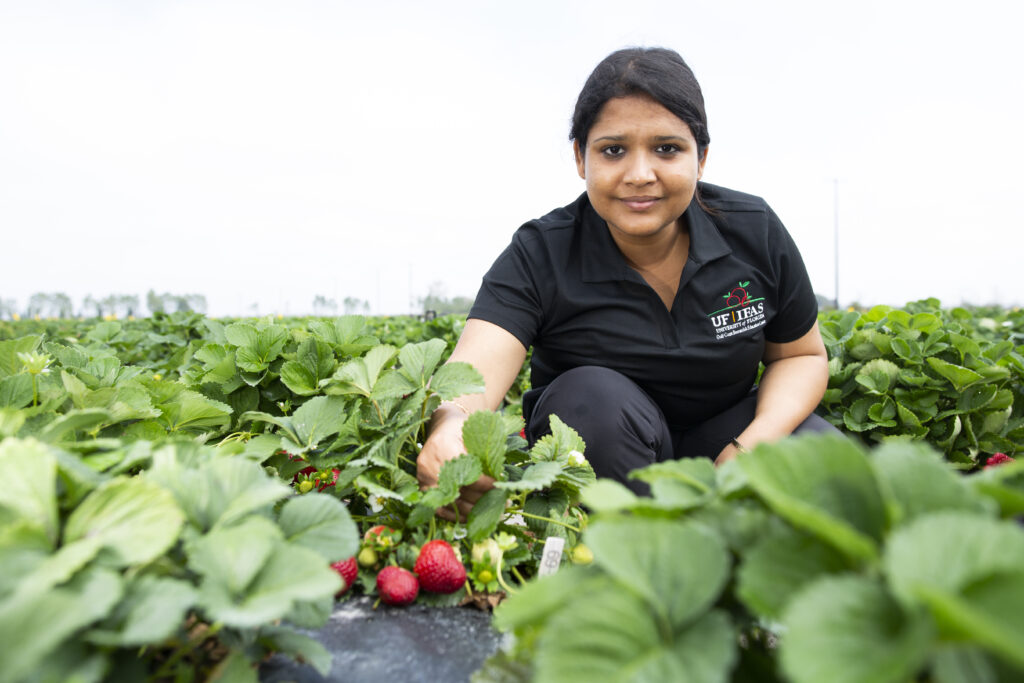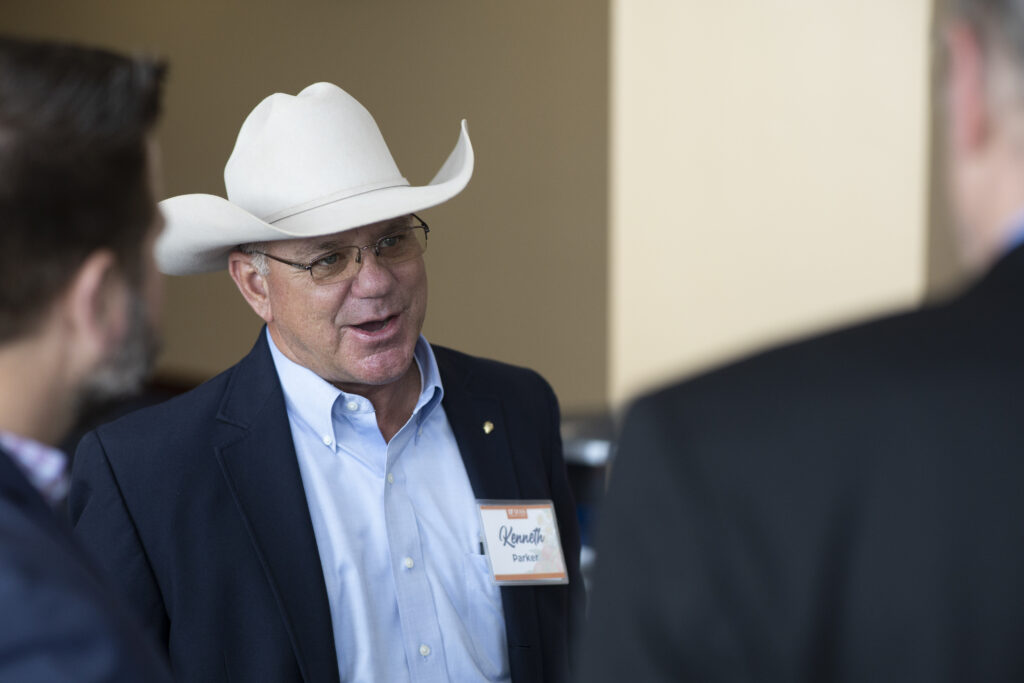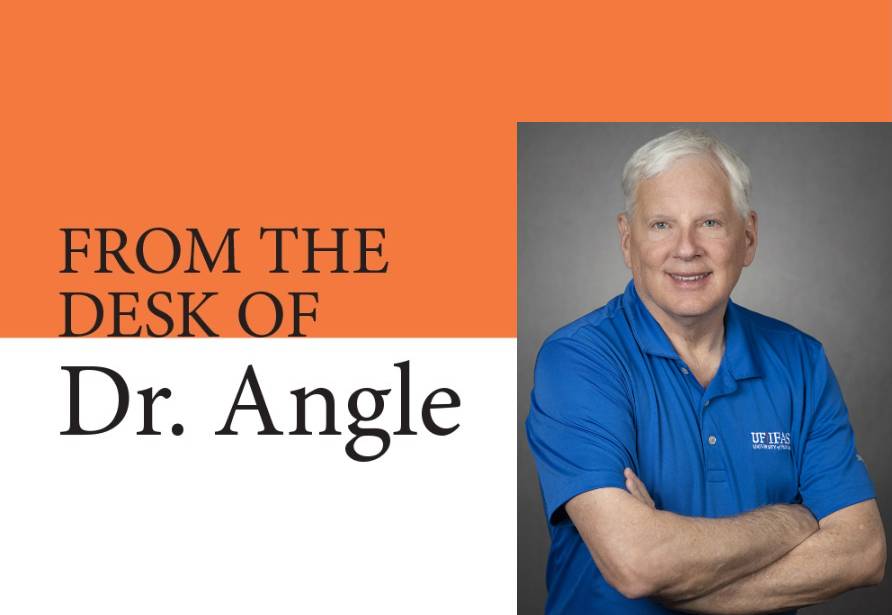By J. Scott Angle
@IFAS_VP
It is expensive to seek science-based solutions to strawberry diseases. So is failing to seek them.
So when pestalotia arrived here, the Florida Strawberry Growers Association chose to invest in science—again. This time, it was a six-figure check to help UF/IFAS strawberry breeder Vance Whitaker launch a wide-scale search for a pestalotia-resistant variety.
It was typical of FSGA’s support—nimble, targeted on a challenge in growers’ fields, and impactful. It’s not always easy to show the impact of what doesn’t happen (crop loss averted). A much more vivid impact of FSGA’s giving is in the clamshell.
Whitaker credits FSGA support as a major contributor to the development of today’s most commonly grown strawberry varieties: Florida Brilliance, Sensation®, Medallion® and more.
The funding for strawberry science comes from several sources, but the FSGA support has several special qualities that increase its effectiveness.
For one, as illustrated by the pestalotia example, FSGA can act quickly in a crisis. It can do so because of the expertise of its executive director and its board.
Second, FSGA communicates regularly to keep scientists focused on what matters most in the field. Whitaker is in constant communication with FSGA Executive Director Kenneth Parker. At least during the season, Parker speaks daily to Whitaker’s boss, Jack Rechcigl, director of the UF/IFAS Gulf Coast Research and Education Center (GCREC).
Third, FSGA catalogs an array of problems experienced by growers and invests in a wide range of solutions. Virtually every scientist at GCREC is touched by FSGA grant funding. It amounts to about a million dollars a year. The current 24 projects include:
- Shinsuke Agehara’s evaluation of optimum nitrogen rates and planting dates;
- Dana Choi’s use of artificial intelligence to predict yield more precisely than ever;
- Sriyanka Lahiri’s use of non-crop plants that support insects that prey on the chili thrips that prey on berries;
- Seonghee Lee’s identification of which genes need to be turned on or off to produce traits like sweetness and pest resistance in strawberries.
In fact, Lee likely wouldn’t be on staff at GCREC and contributing so powerfully to the breeding program were it not for FSGA. The association covered Lee’s salary and benefits for his first seven years.
Fourth, FSGA support is long-term and consistent. Whitaker says this is critical. He has plenty to worry about: bugs, disease, weather, shelf life, taste, yield, and appearance, to mention a few. What he doesn’t have to worry about is having to shut down even temporarily because he can’t pay the bills.
That matters so much, because if you shut down a world-class breeding operation even for a short time, you can’t just fire it up again and pick up where you left off. Unplugging the freezer would kill the gene library from which Whitaker creates the combinations to produce the next great berry. That library took decades to build.
FSGA has been the bulwark against such a catastrophe. It has been the steady source of income Whitaker knows he can count on. It allows him to plan, to hire, to buy, to take risks, and not to worry that it’s all going to grind to a halt.
Whitaker also receives a great deal of support from the United States Department of Agriculture. It can come in substantial amounts. But the USDA has to balance national priorities, and its budget is subject to the politics of appropriations. It’s not a go-to for a consistent stream of income. Whitaker and the team at GCREC turn to FSGA for that steady keep-the-lights-on support.
The University of Florida just finished a fundraising campaign to propel the university forward in areas from health care to engineering to the arts. Before moving into the next campaign, we’re taking stock of the impact of this support. In the field of agriculture, FSGA stands out among the many whose giving has made an immediate and tangible impact.
FSGA didn’t give just because we had a campaign. They’ve been a part of our steady march of progress for 40 years. We’ve been thanking them for just as long and will continue to call our successes their successes, too.
J. Scott Angle is the University of Florida’s Senior Vice President for Agriculture and Natural Resources and leader of the UF Institute of Food and Agricultural Sciences (UF/IFAS).





